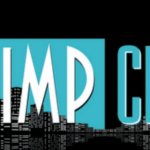Recuperbate has a profound meaning, especially related to well-being. While a significant factor in living a healthier lifestyle, it is usually related to the process of physical healing, mental restoration, and emotional equilibrium. Recuperation — Perhaps you are convalescing from an illness, rebounding from stress, or organics after a prolonged day, recuperation is significant for long-term healthy.
Resting is only one part of the recovery process but resting too much has adverse side effects. As we continue to focus on health, recovery simply is not resting. Humans are designed to heal and our body has natural ways of doing it, it is part of our evolution so if you find a way to practice what makes you feel normal, you can actually take a break. Which includes proper nutrition, getting enough sleep, practice relaxing, and even doing things that gives you joy and satisfaction. And, certainly, recovery is tied so closely to your mental health — times of rest give your brain a chance to process and then reset and find clarity again.
In this post, we will closely examine what recuperation really is, its importance for physical and mental health, and practical ways to build recuperation into your daily routine. Regardless of whether you are recovering from a workout, working through your stress levels, or just looking for ways to feel more alive, learning about the art of recovery can help you live a more healthy, balanced life.
What Does Recuperbate Mean?
Essentially, the word recuperate could be described as recovering or recuperating, especially from sickness, injury, or exertion. This idea is more than simply resting; it is about ultimately returning to health and life. Recuperate conveys the sense of involvement in the recovery process – bringing in practices and therapies that facilitate healing.
The Role of Recuperbate in the Body Healing Process
Recuperate is a process that is important for a whole host of reasons:
Material needs like healing time: When we are sick or hurt, our body takes time and resources to recover. Recuperbate helps the body to recover quicker by decreasing inflammation, improving blood flow, and replenishing nutrients.
Recovery is not limited to bodily recovery; mental recovery is also significant. Considering how impatient the body can periodically become in healing, the recuperating process stresses values like mental rest and mindfulness, as well as emotional support, which goes a long way in phasing out anxiety and depression that often accompanies recovery.
Avoiding Relapses: Well-cornered recovery measures provide the right time limit on their return to the mainstream, facilitating the probability of their relapsing. Resting correctly will add years to your health span.
Performance Improvement: The recuperate process can compound and significantly improve performance for athletes or anyone who participates in frequent exercise. Taking the time to recover properly can lead to improved strength, endurance, and all-around performance.
According to experts, here are the significant things to remember for a formative recuperate routine.
Building a recuperate routine that works for you has many moving pieces that can serve both physical and mental recovery.
Rest and Sleep
Among the basic contributors to recuperation are lots of sleep and napping. Sleep allows the body to heal itself and grow, creates strong immune functions, helps the body recover, and processes memories. Most adults require between 7 and 9 hours of restorative sleep every night to maximize recovery systems.
Nutrition and Hydration
Good nutrition is essential for recovery. A healthy diet rich in fruits, vegetables, lean proteins, and whole grains will provide the nutrients necessary for recovery. Additionally, it aids in bodily function and can help reduce fatigue and muscle cramps.
Gentle Stretching and Movement
Rest is essential, but so is gentle movement—take a short walk or move around. Gentle exercise like walking, yoga, or stretching can promote blood flow, reduce muscle tension, and help you be more flexible. Mindful movement can also help clear our minds and emotional functions.
Mentality and mindfulness
Adding mindfulness practices like meditation, deep-breathing exercises, or journaling can improve the recuperate experience, too. These practices relieve stress and induce a good mental condition, building emotional resilience during recovery.
Connections to Others & Social Support
Step 2—Focus on tangible moments of respite: A good support system is crucial during the recovery process. Family, friends, or support groups can offer emotional support, practical help, and encouragement.
Professional Guidance
Seeing a healthcare professional is necessary if you have some injury or health problem. Seeking help from physiotherapists, dietitians, and mental health specialists provides personalized advice based on personal requirements to help treat us holistically.
The Process of Recuperbate — Challenges
Now, while recuperating is everything, there are various hurdles ahead, such as no patience, no motivation, or perhaps the pressure from the outside world to get back to routine. Identifying and overcoming these obstacles is a crucial part of the recovery process.
Overcoming Impatience
The recuperation process requires a lot of patience from many, and the natural desire is to shoot on back into their everyday lives. Whatever you do, be mindful that recovery is not a straight line. Always remember that it is a process and will take time. You can practice self-compassion about this feeling, reminding you that your body needs to recover well and that this is more important than dry-land practice.
Motivation
It could even be challenging to stay motivated while undertaking the recuperation journey. Breaking it down into small, achievable goals, celebrating the milestones, and not shying away from assistance from friends and family will help nurture motivation and maintain progress.
External Pressures
External pressures such as social and work obligations may pressure you into returning to normal sooner than you should. It is your duty to speak up about it and maintain your boundaries as the situation demands to respect your recuperation process.
Conclusion
Recuperbate is not just about physical recovery—it also involves mental and emotional well-being. Whether recovering from an illness, injury, or emotional strain, healing requires a balanced approach that nurtures both the body and the mind. True recuperation strengthens resilience, prevents relapses, and promotes overall well-being.
A successful recovery process includes adequate rest, proper nutrition, hydration, and gentle movement to restore physical strength. Equally important is mental and emotional recuperation, which can be achieved through mindfulness, relaxation techniques, and engaging in fulfilling activities that reduce stress and enhance emotional stability.
It’s essential to recognize that recovery is a journey, not a destination. Setbacks may occur, but prioritizing recuperation as a daily practice rather than an occasional necessity leads to lasting health benefits. By embracing this mindset, individuals can cultivate a more joyful, balanced, and fulfilling life while maintaining both physical vitality and mental clarity.










